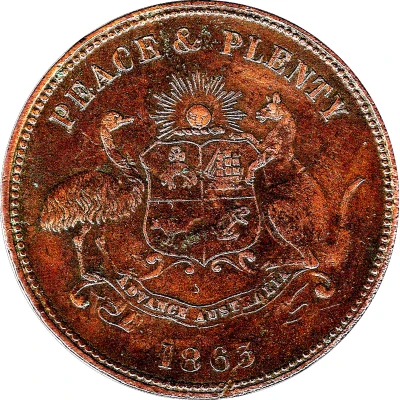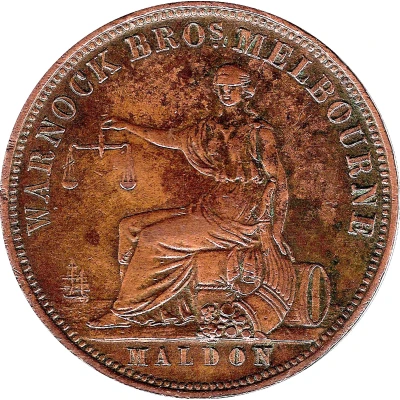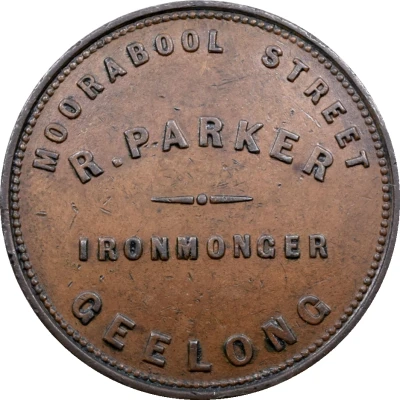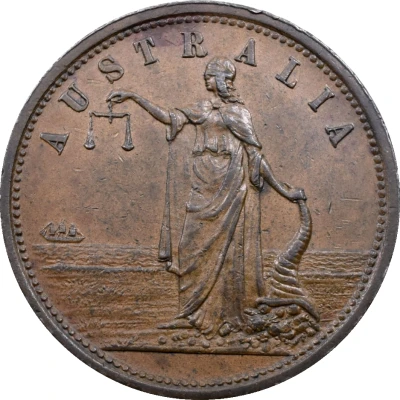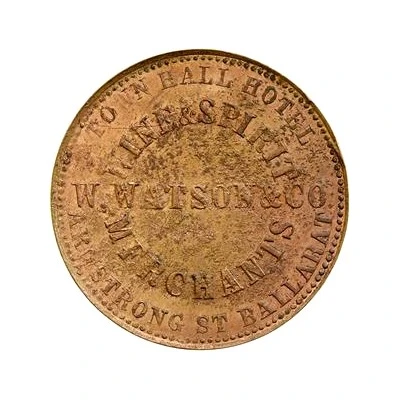
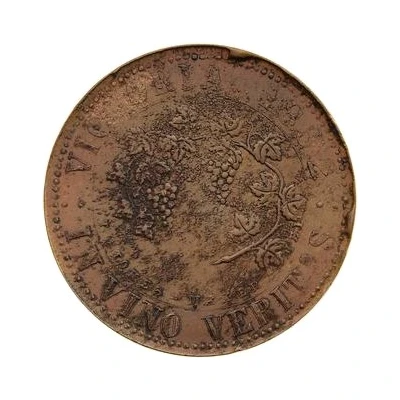

1 Penny - W. Watson Restrike - Ballarat; Victoria ND
1918 year| Copper | 15.22 g | 34 mm |
| Issuer | Victoria (Australian States) |
|---|---|
| Queen | Victoria (1837-1901) |
| Type | Token |
| Year | 1918 |
| Value | 1 Penny (1⁄240) |
| Currency | Pound sterling (1788-1900) |
| Composition | Copper |
| Weight | 15.22 g |
| Diameter | 34 mm |
| Shape | Round |
| Technique | Milled |
| Orientation | Medal alignment ↑↑ |
| Demonetized | 1863 |
| Updated | 2024-10-04 |
| Numista | N#10853 |
|---|---|
| Rarity index | 94% |
Reverse
At centre within a line circle a piece of grape vine with eleven large leaves and two bunches of grapes, below, but still within the line circle the manufacturers name T. STOKES MAKER MEL.; around above, VICTORIA . 1862, around below the Latin IN VINO VERITAS. Border of 116 beads. This is a Stokes stock reverse, used for many trade token issuers. It is numbered in the standard catalogues as: Sharples Vine 3 = Heyde Vine 3 = Andrews 7.
Script: Latin
Lettering:
VICTORIA. 1862
STOKES MAKER MEL
IN VINO VERITAS
Edge
Plain
Comment
Rarity R9 Restrike
Copper One Penny Token, minted by Thomas Stokes, Melbourne. Originally issued by W.R. Watson & Co, Town Hall Hotel, Ballarat, Victoria, 1862. This token is a late strike, it was struck circa 1918 for collectors. W.R. Watson is listed as the owner of Town Hall Hotel, Armstrong Street in the 1865 Ballarat Directory. An advertisement in the Ballarat Evening Post, January 1864 read 'Town Hall Hotel, and Wine and Spirit Stores, Armstrong Street. The Cheapest House in Ballarat. Single Bottle Department. Brandy 5s-, Gin 4s, Rum 3s, Whiskey 3s. Per bottle. Every article sold as imported. W.R. Watson and Co. Proprietors'.
Interesting fact
One interesting fact about the Token 1 Penny - W. Watson (Restrike - Ballarat; Victoria) ND (1918) coin is that it was minted during a time of coin shortage in Australia during World War I. The government had to resort to issuing tokens, like this one, to alleviate the shortage. This coin is a restrike, meaning it was minted later than the original issue date, and it's made of copper, which was a common material for coins at that time.
